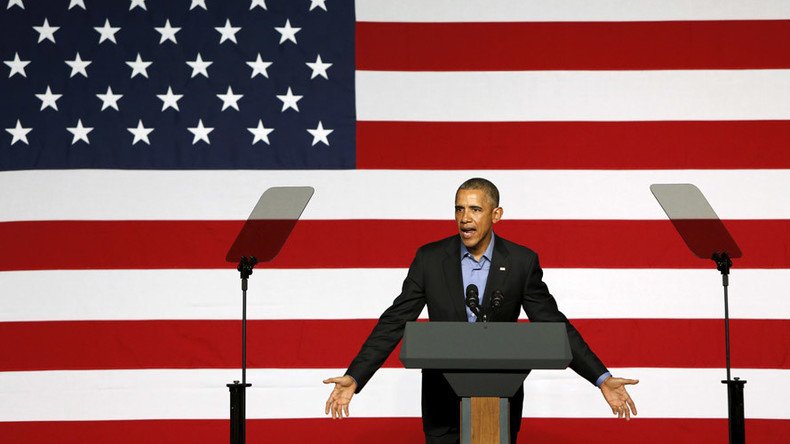Obama makes case for gov access to all digital devices to prevent terrorism and tax cheats

Without mentioning the government’s case against Apple directly, President Barack Obama told a Texas audience that mobile devices should be built such a way that the government can access them in order to prevent a terrorist attack or enforce tax laws.
“The question we now have to ask is: If technologically it is possible to make an impenetrable device or system where the encryption is so strong that there is no key, there’s no door at all, then how do we apprehend the child pornographer, how do we solve or disrupt a terrorist plot?” Obama said during a question and answer session at the South by Southwest Interactive festival in Austin, Texas on Friday, according to Reuters.
“What mechanisms do we have available to even do simple things like tax enforcement because if in fact you can’t crack that at all, government can’t get in, then everybody is walking around with a Swiss bank account in their pocket,” he added.
President Obama, at South by Southwest, calls for law enforcement access in encryption fight https://t.co/sqm42TgtoBpic.twitter.com/KKyuk1S3eZ
— The New York Times (@nytimes) March 12, 2016
Apple and the federal government are embroiled in a legal battle over Apple’s refusal to help the FBI access an iPhone used by one of the San Bernardino terrorist attackers, Farook Sayed, who, along with his wife, shot and killed 14 people on December 2 at a holiday party in California. The couple later died in a shootout with police. The case has raised questions over law enforcement’s ability to access encrypted devices, or more specifically, the lack thereof.
The Justice Department has argued that they are not interested in undermining encryption in general, and have only resorted to seeking a court order in order to gain access to one specific iPhone. However, Apple claims that this would require them to build a whole new operating system with a backdoor leaving millions of other devices vulnerable not only to government surveillance, but to hackers and criminals as well.
MORE: DOJ filing is like "throwing pasta on a wall" - Apple general counsel & senior VP https://t.co/UERWUGWyMipic.twitter.com/G5jJVrsrOh
— RT America (@RT_America) March 11, 2016
Obama said that the debate over encryption versus national security wouldn’t be settled by taking an “absolutist view,” adding that while both values are important, and he is “way on the civil liberties side,” concessions must, at times, be made.
“Setting aside the specific case between the FBI and Apple, ... we’re going to have to make some decisions about how do we balance these respective risks,” Obama said.
Obama also highlighted how government and technology companies might work together to solve various problems, such as making it easier to vote.
Apple and the Justice Department are due back in court on March 22.












